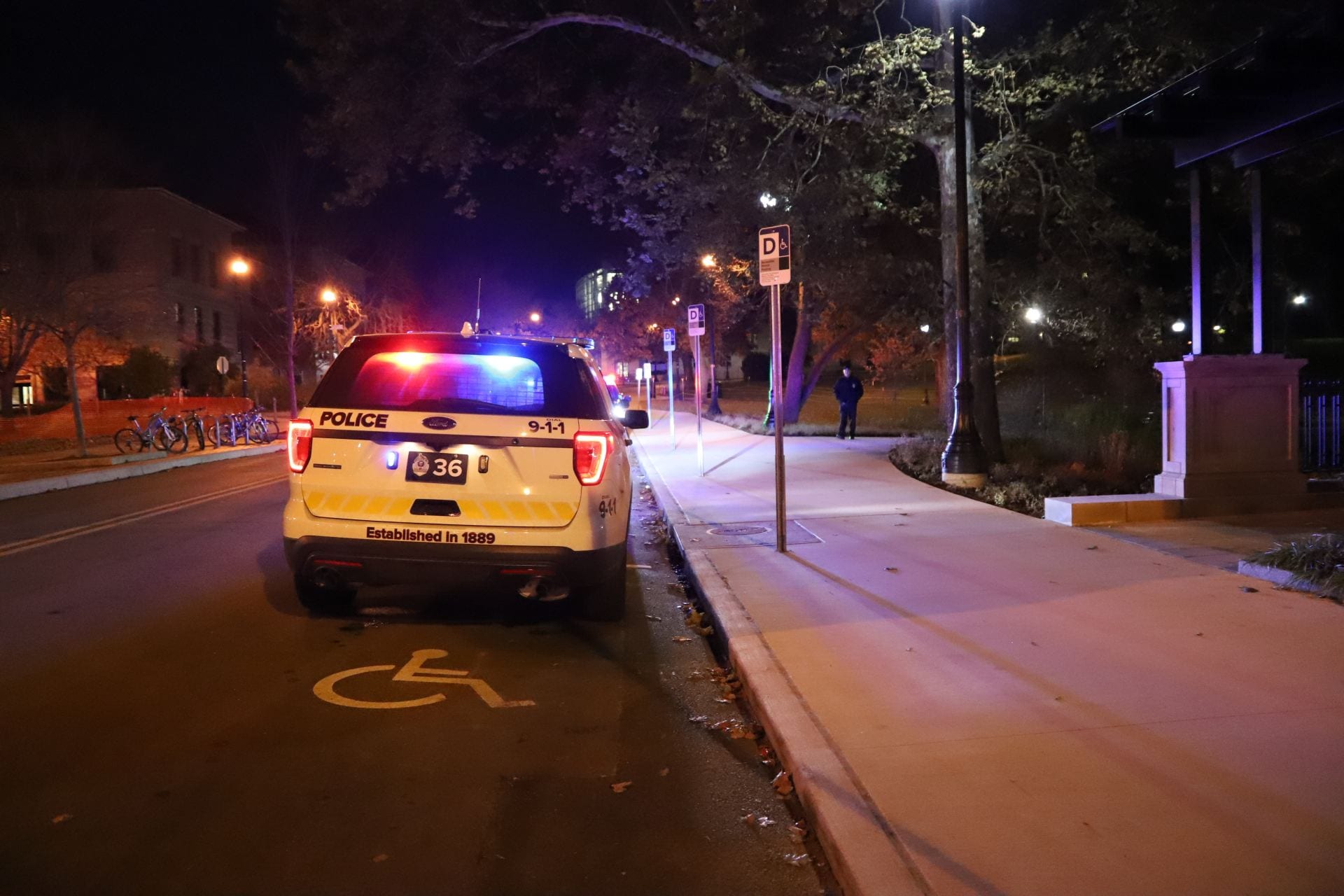
Two women involved in last year’s vandalism of the OSU Hillel building have each taken a plea deal that dismissed three of the four charges against them. Credit: Bailey Johnston | Lantern Reporter
Two women involved in last year’s vandalism of the OSU Hillel building — Oumaima Amri and Lena Ahmad Shabaneh — have each taken a plea deal that dismissed three of the four charges against them.
According to complaints filed by the Franklin County Municipal Court, Amri and Shabaneh entered OSU Hillel’s building — located at 46 E. 16th Ave. — Nov. 9, 2023, during which they took Israeli flags and threw them on the ground and shouted expletives and anti-Israel statements.
The complaints state Amri and Shabaneh faced four charges: ethnic intimidation, theft, criminal mischief and criminal trespass. However, Columbus City Attorney Zach Klein said OSU Hillel sought a plea agreement focused on education in exchange for dropping all charges apart from the criminal trespass allegation.
“Hillel was very interested in restorative justice; in a path where these two young women would get a chance to understand what Hillel is, learn about Jewish culture, Jewish way of life, and understand how their actions hurt the students and how the intimidation — especially at a time where there’s a rise in antisemitism in our country — that their actions go beyond just vandalism or trespassing, that it can have a negative psychological impact on the Jewish community,” Klein said.
Rabbi Aaron Portman, Ohio State campus rabbi and senior Jewish educator at OSU Hillel, said in an email that the restorative justice process intends to “encourage communication” amid the growing tensions resulting from the war in Gaza.
“One of our core values at Hillel is education, and we felt going through a process of restorative justice and discussion would be a more effective way to address what happened, and could hopefully prevent something like this from happening again,” Portman said. “We also believed it could help model dialogue work which, unfortunately, has been very difficult to engage in over the past 11 months since [Oct. 7].”
As part of this process, Portman said Amri and Shabaneh attended four listening and learning sessions, which included discussions between two Jewish students, himself and local congregational Rabbi Sharon Mars.
“Each session focused on different aspects of learning and listening, and involved sharing perspectives, feelings and assumptions about one another,” Portman said. “The goal was to try and bridge divides and move towards mutual understanding, as well as an acknowledgment of responsibility from the two women.”
Portman said Amri and Shabaneh also attended a workshop with Roots-Judur-Shorashim, an organization that “platforms Israeli and Palestinian activists who are engaged in dialogue work.”
According to the Roots-Judur-Shorashim website, the organization aims to develop a mutual understanding and partnership between these two groups during the ongoing conflict.
After these listening and learning sessions, Portman said he and Mars dined with Amri and Shabaneh, giving them an opportunity to reflect on their experiences together as they moved through the restorative process.
“The final session was a shared Shabbat dinner at a local synagogue which coincided with the Iftar break-fast,” Portman said. “This was an opportunity to celebrate the learning we had done together, and the new relationships we were able to form over our time together.”
Shabbat is the weekly Jewish day of rest and worship, which lasts from just before sundown on Friday to the completion of nightfall on Saturday. Iftar is the breaking of the daily fast during the holy Islamic month of Ramadan.
Portman said these combined sessions promoted a deeper understanding of culture between Amri, Shabaneh, the Jewish community and those personally involved in the restorative justice process.
“We believe this was a uniquely impactful experience, both for these two women and for our students,” Portman said. “Sharing about their experience was part of the process, and it was evident that the opportunity to learn about our community was transformative.”
Klein said this educational approach to justice is effective in preventing similar crimes, as it allows people to understand the impact of their actions and enables them to grow.
“If there are ways that we can get people to learn about the lessons of their crime, to become a better person, to understand different perspectives so that they don’t commit that crime in the future, that is a win for public safety in our community,” Klein said.
Portman said Hillel’s plea agreement was the right course of action, as it allowed Amri and Shabaneh to view their actions from the standpoint of Jewish people and take responsibility for the harm that followed.
“We are confident that the intensive dialogue work we engaged in helped these women understand the impact of their actions, as well as deepen their understanding of the Jewish community and our connection to Israel,” Portman said. “We felt that their learning and taking responsibility for their actions was the right combination of consequences and accountability.”


